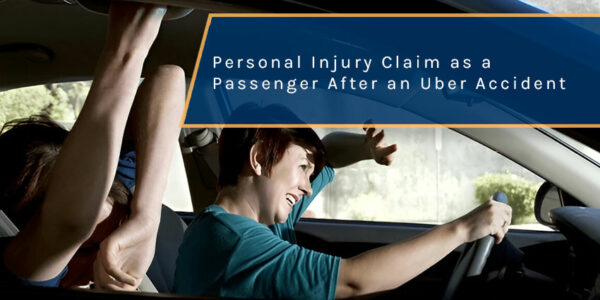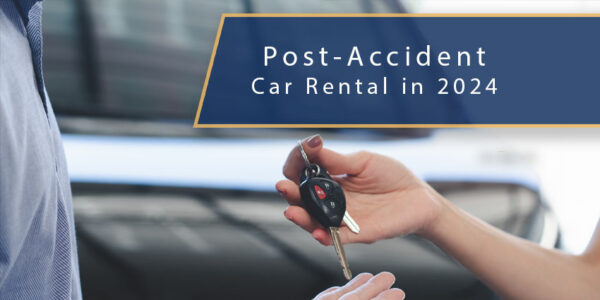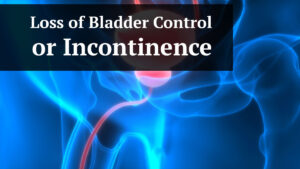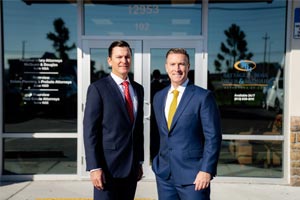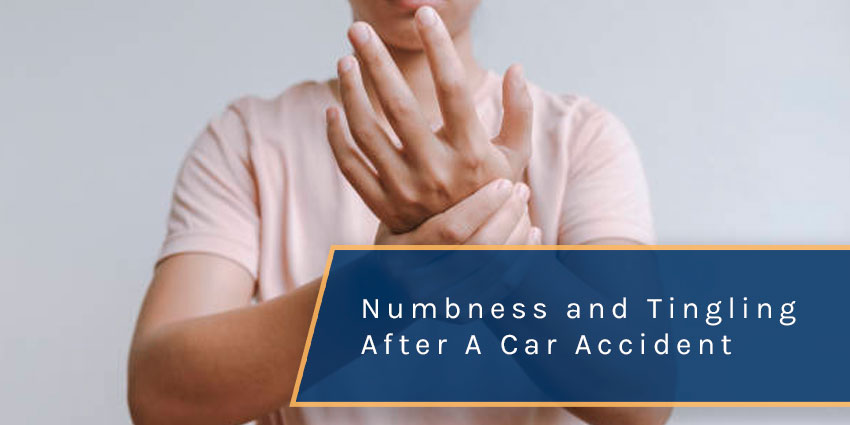
We all know that horrible feeling after we hit our funny bone – numbness and tingling take over your arm and leave you shockingly uncomfortable. A bump to the elbow, fortunately, passes quite quickly. But what if these kinds of symptoms were something that persisted? It’s easy to imagine how awful and uncomfortable that would be, even leading to trouble functioning in daily life.
After a car accident, many people experience these kinds of symptoms. Numbness and tingling are caused by damage or contact with nerves. You are not alone in wondering whether numbness and tingling are considered normal after a car accident.
It’s important to know what potential causes might be at play and when you should seek medical attention. It’s good to also consider the advice of a St. Petersburg car accident attorney to help you recover related costs.
What Kinds of Car Crashes Lead to Nerve Damage?
Car accidents, unfortunately, have the potential to cause various types of injuries, including nerve damage. As all experienced St. Petersburg car accident attorneys know, there are certain types of car accidents that seem to be more closely associated with such injuries.
High-speed collisions
Imagine two vehicles colliding at a significant speed—scary and full of force. High-speed accidents often lead to severe impact forces that can cause extensive injuries throughout the body, including nerve damage. The sudden jolts and violent movements during these crashes may result in compression or stretching of nerves, leading to numbness and tingling sensations.
T-bone or side-impact collisions
Picture a car being struck from the side—like a surprise attack from out of nowhere. T-bone collisions occur when one vehicle is hit directly on the side by another. In these situations, occupants may experience increased risks for nerve damage due to the potential for forceful impacts targeting specific areas like the head, neck, or pelvis.
Rollover accidents
Visualize a car losing control and rolling over multiple times—an unnerving and chaotic situation. Rollover accidents involve rapid rotational motions that can subject occupants to unpredictable forces. These forces may contribute to nerve-related injuries as individuals endure intense twisting movements that strain or compress nerves along their spinal column.
Motorcycle crashes
Consider a motorcyclist involved in an accident without much protection—the vulnerability is evident here. Motorcycles offer significantly less physical protection compared to cars during crashes since riders are more exposed on two wheels rather than enclosed within a vehicle’s frame. This lack of protection increases risks for serious trauma and nerve damage from impact and contact with other objects.
Pedestrian or cyclist collisions
Imagine crossing paths with an oncoming vehicle while walking or cycling—an unthinkable scenario. Unfortunately, accidents involving pedestrians or bicyclists being struck by cars can result in severe injuries, including nerve damage. The lack of external protection for these vulnerable individuals makes them prone to significant trauma and associated nerve-related complications.
If you suspect or experience any symptoms of nerve damage following a car accident it is crucial to seek immediate medical attention.
When to See A Doctor and the 14-Day Rule
After any accident, it is essential to get looked over by a medical professional. This is not just for your physical well-being but for your insurance claim. Florida has a 14-day accident law. This law requires you to get checked out in those first two weeks following the crash in order to qualify for your personal injury protection insurance, or PIP, to be applied to your bills. Without this timely check-up, your PIP benefits may be limited or declined by an insurance company.
Florida’s 14-day accident law may sound confusing, but it’s actually a rule that aims to protect car accident victims. You don’t have to be a St. Petersburg car accident attorney to understand it. Simply put, if you’ve been involved in an auto collision in Florida, you must seek medical treatment within 14 days of the incident to be eligible for PIP benefits under your insurance policy.
It might feel like an inconvenience, having to rush to a doctor amidst the chaos of dealing with the aftermath of an accident, but this law is designed to ensure that any potential underlying injuries are addressed promptly. So while it may seem like just another bureaucratic requirement, remember that it’s rooted in looking out for your well-being and ensuring you receive the necessary care and support after a traumatic event like a car crash.
Why Does the Body Experience Numbness and Tingling After An Accident?
Firstly, let’s address the immediate aftermath of a collision. It’s important to note that motor vehicle accidents can expose the human body to various forces and potentially cause injuries. These injuries may not always be apparent straight away due to shock or adrenaline masking pain signals. So while you may feel fine initially, it is not uncommon for symptoms like numbness and tingling to arise later on.
Nerve Impingement
One possible cause of numbness and tingling after a car accident could be nerve compression or impingement caused by sudden jolts or impacts. For instance, if your neck experiences a severe jerk during the collision (commonly referred to as whiplash), nerves in that area might become irritated or compressed leading to these abnormal sensations.
Soft Tissue Damage
Another frequent culprit is soft tissue damage. Ligaments, muscles, tendons, and other connective tissues can get strained or injured during an accident. The inflammation resulting from such injuries could put pressure on nearby nerves, causing those uncomfortable pins-and-needles sensations.
Are My Symptoms Normal Or Should I Seek More Help?
These explanations aside, it’s crucial never to dismiss numbness and tingling as just “normal” consequences. Seek appropriate evaluation from a healthcare professional and a qualified St. Petersburg car accident attorney. In some cases, these symptoms might be temporary and resolve over time as your body naturally heals itself. However, oftentimes nerve issues become persistent or worsen. It’s a good idea to check with a St. Petersburg car accident attorney about your potential long-term costs.
What Are Severe Nerve Damage Symptoms?
Here are some red flags that warrant prompt further examination by a healthcare provider:
Severe pain
If you not only experience numbness or tingling but also severe pain that radiates from your neck or back to other body parts, this may indicate more serious damage.
Loss of sensation
If the affected area goes entirely numb or if you lose any feeling in certain body parts, it’s crucial to consult a medical professional without delay.
Weakness or clumsiness
Having difficulty moving, weakness in limbs, or clumsiness can be a sign of nerve involvement and might require further evaluation.
Delayed onset
Numbness and tingling appearing days or weeks after an accident should be taken seriously as it could indicate underlying issues that necessitate investigation.
How Car Accidents Can Cause Numbness and Tingling
Car accidents can result in a wide range of injuries, some of which may cause numbness and tingling. Here’s a humanized list of common car accident injuries that can lead to these sensations:
Whiplash
Imagine your neck feeling like it went on a rollercoaster ride. Whiplash occurs when your head suddenly jerks back and forth during a collision, injuring the soft tissues in your neck. This injury can irritate or compress nerves, causing numbness and tingling down the arms or into the fingers.
Spinal cord injuries
Your spinal cord is like your body’s information superhighway, responsible for transmitting signals between your brain and other body parts. During a severe car accident, spinal cord damage can occur due to fractures or dislocation of vertebrae. This type of injury may lead to paralysis, loss of sensation, or tingling in areas below the affected region.
Compression fractures
Picture an accordion—when too much force is applied to vertebral bones in accidents involving significant impact, compression fractures can happen. These fractures might press on nerves running through the spine, potentially resulting in numbness or tingling sensations.
Herniated discs
Visualize those jelly-filled cushions between your spinal bones getting squished out of place after an accident impact. A herniated disc occurs when the soft interior protrudes through cracks in its outer layer and puts pressure on neighboring nerves. This pressure can cause numbness and tingling that radiates along nerve pathways.
Broken bones
Car accidents often involve significant forces that can lead to fractured bones, especially in areas like the arms or legs bracing against impact during collision moments. Depending on the location and severity of the fracture, there is potential for nerve involvement leading to altered sensations.
Blunt force trauma/injury
Sometimes vehicles can hit objects with great force during accidents—an unfortunate consequence of such incidents that leads to trauma. This trauma can directly damage nerves, causing numbness and tingling in certain body parts or even widespread sensations.
Brachial plexus injury
Twisting, jerking, or violent arm movements during a crash can cause damage to the brachial plexus—the network of nerves that controls movement and sensation in the shoulder, arm, and hand. This type of injury can result in numbness, tingling, or weakness in the affected limb.
Contact A St. Petersburg Car Accident Attorney For Your Free Evaluation
While some numbness and tingling sensations are not uncommon following a car accident, you could be facing a lifetime of pain and challenges. You don’t have to solve this alone – reach out to a St. Petersburg car accident attorney who understands nerve damage. Your first meeting will help shed light on your options and this consultation is absolutely free.
Having a knowledgeable St. Petersburg car accident attorney on your side can make all the difference. You’re no longer alone in your fight and you have someone with the experience to back you. They will explain everything along the way and deal with the insurance companies for you. An expert legal team will support your every need as you fight for the compensation that is rightfully yours. They’ll handle all the complicated technical aspects so you can just focus on getting back to as normal a life as possible.
No matter how simple or complex, our St. Petersburg car accident attorneys are here for you. You need to get back on your feet after numbness and tingling have set you back in the wake of a car crash. Take advantage of your free consultation today. There’s no risk and it could be just the kind of support you’ve been looking for.


















